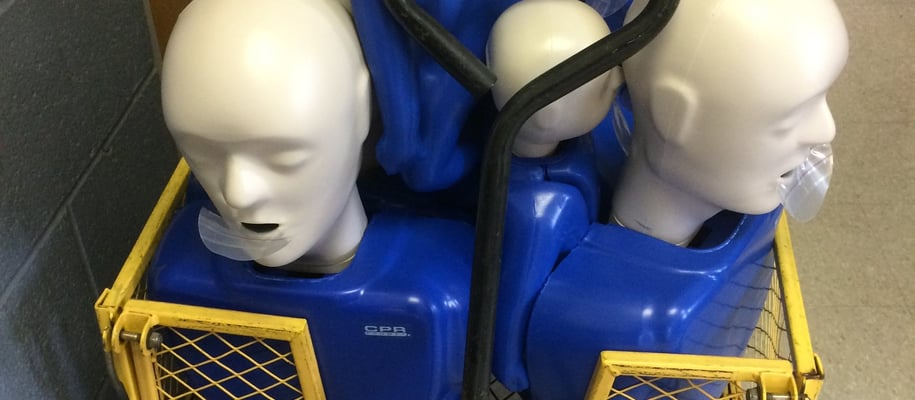Forgiveness


It's one of those calls you never forget when working as an EMT/Firefighter. You never forget the first time you did CPR on a real person. None of those sterile manikins. No, this is a real person whose family is watching every move you make. I still remember finding the gentleman lying on the kitchen floor. My crew was well-trained and swift to action. My initial job was chest compressions. And being the first time, I can tell you I was a little jacked up.
The idea with chest compressions is that you want to do about 100-120 compressions a minute while pressing down about 2-2 1/2 inches. That allows blood to flow into the heart chamber and out to the rest of the body. Too fast, and it doesn't work. Being excited that day, I now realize that I was pushing around 160-170 compressions a minute. (I think I was playing "Staying Alive" in my mind at 78rpm instead of 33 1/3.) My paramedic friend had to tell me to slow down.
Now, I know this guy was behind the 8 ball. Most people do not survive a heart attack in the pre-hospital setting when CPR is delayed. Still, I went away wondering if I somehow screwed something up, and that is why he is no longer walking the face of the earth. Did I go too fast? Did I not go deep enough? Was my hand placement correct? As first responders, we can be especially hard on ourselves. We second guess our actions when things go bad and often place blame on ourselves even when nobody else does. We can be our toughest critics and the last ones to forgive ourselves.
In an article in Stigma and Health this last year, they did research on firefighters and why they were so reluctant to seek mental health treatment. Yes, we don't like our co-workers knowing we are getting counseling. We perceive that they think we are weak and can't handle the job. But something else emerged from this study: those who were less forgiving of themselves were far less likely to seek clinical help. They went on to say,
"The present study also found significant and large associations between self-forgiveness and mental health symptoms in firefighters such that those reporting higher levels of depressive symptoms, PTSD symptoms, and suicidal symptoms had lower levels of self-forgiveness."
This caught my attention since the topic of forgiveness is the area of the chaplain.
Being this was an article from the American Psychological Association; I didn't expect it to have a theological perspective on forgiveness. But from a chaplain's perspective, while I find value in self-forgiveness, I find it shallow. To me, giving yourself forgiveness is like giving yourself a birthday present. It's nice, but it doesn't mean the same as if someone else gave it to you. Self-forgiveness is nice, but forgiveness from God means so much more for those who have a faith background and mindset. Even though I think that is very important, I'm not talking about a salvation experience. I'm talking about forgiveness from God for possibly letting a man die because I did CPR wrong. I find that forgiveness from God needs to come first, so any forgiveness we can give ourselves can have any weight.
As chaplains, I suggest that when we talk with our first responders, we probe that area of forgiveness. See if this is really a root issue. Knowing that low self-forgiveness can be a root issue may mean the difference in our first responders getting the mental and spiritual health they need.
